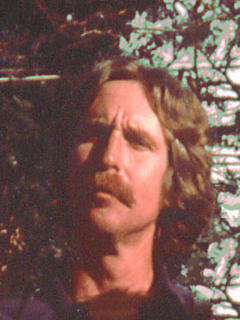Published: May 26, 2009 (New York Times)

WASHINGTON — President Obama announced Tuesday that he would nominate Sonia Sotomayor, a federal appeals judge in New York, to the Supreme Court, choosing a daughter of Puerto Rican parents who was raised in a Bronx public housing project to become the nation’s first Hispanic justice.
In making his first pick for the court, Mr. Obama emphasized Judge Sotomayor’s “extraordinary journey” from modest beginnings to the Ivy League and now the pinnacle of the judicial system. Casting her as the embodiment of the American dream, he touched off a confirmation battle that he hopes to wage over biography more than ideology.
Judge Sotomayor’s past comments about how her sex and ethnicity shaped her decisions, and the role of appeals courts in making policy, generated instant conservative complaints that she is a judicial activist. Senate Republicans vowed to scrutinize her record. But with Democrats in reach of the 60 votes needed to break a filibuster, the White House appeared eager to dare Republicans to stand against a history-making nomination at a time when both parties are courting the growing Hispanic vote.
“When Sonia Sotomayor ascends those marble steps to assume her seat on the highest court of the land,” Mr. Obama said as he introduced her in the East Room of the White House, “America will have taken another important step towards realizing the ideal that is etched above its entrance: Equal justice under the law.”
Ms. Sotomayor, 54, a graduate of Princeton and Yale who served as a prosecutor, corporate litigator and federal district judge before joining the United States Court of Appeals for the Second Circuit, in New York, a decade ago, would become the nation’s 111th justice.
She would be the third woman to hold a seat on the court and the sixth person on the current nine-member panel with a Roman Catholic background.
If confirmed to succeed Justice David H. Souter, a mainstay of the liberal wing who is retiring, Judge Sotomayor would probably not change the court’s broad philosophical balance. But her views on same-sex marriage, gun rights, financial and environmental regulation, executive power and other polarizing issues could help shape judicial rulings for years, if not decades, to come.
At the heart of the fight over her nomination will be a debate over the role that a judge’s experience should play in rendering decisions. Although Mr. Obama said on Tuesday that “a judge’s job is to interpret, not make law,” his emphasis on a nominee with “empathy” has generated criticism from Republicans, who saw that as code for legislating personal views from the bench.
Judge Sotomayor has said that “our experiences as women and people of color affect our decisions.” In a lecture in 2001 on the role her background played in her jurisprudence, she said, “I would hope that a wise Latina woman with the richness of her experiences would more often than not reach a better conclusion than a white male who hasn’t lived that life.”
She also said at a conference in 2005 that a “court of appeals is where policy is made,” a statement she seemed to understand at the time would be controversial, because she added, “I know this is on tape and I should never say that, because we don’t make law.” The White House said she meant that appeals courts play a greater role in interpreting laws than district courts, but Republicans pointed to the comment as another sign that she would try to impose her values in rendering decisions.
“Judge Sotomayor is a liberal activist of the first order who thinks her own personal political agenda is more important than the law as written,” said Wendy E. Long, counsel to the Judicial Confirmation Network, a conservative group. “She thinks that judges should dictate policy and that one’s sex, race and ethnicity ought to affect the decisions one renders from the bench.”
Other conservatives said they would focus on her ruling in a New Haven affirmative action case or on how she might rule on same-sex marriage. “Abortion is in some sense a stale issue that has been fought over many times, but gay marriage is very much up for grabs,” said Curt Levey, executive director of the Committee for Justice, a legal group. “Gay marriage will be bigger than abortion.”
As she was nominated on Tuesday, Judge Sotomayor did not retreat from her view that judges ought to look at the impact of their rulings. “I strive never to forget the real-world consequences of my decisions on individuals, businesses and government,” she said.
While conservative groups took aim, Republican senators responded more cautiously, weighing how aggressively they want to fight her confirmation. Twenty-nine Senate Republicans voted against her confirmation to the appellate bench in 1998, including Mitch McConnell of Kentucky, now the party’s Senate leader, while 25 voted for her. Of those still in the Senate, 11 voted against her and 9 for her.
Mr. McConnell said on Tuesday that the Senate would not be a “rubber stamp” and promised that Republicans would “examine her record to ensure she understands that the role of a jurist in our democracy is to apply the law even-handedly, despite their own feelings or personal or political preferences.”
